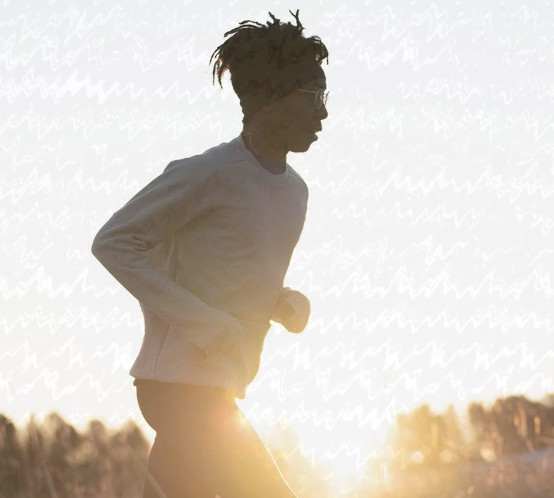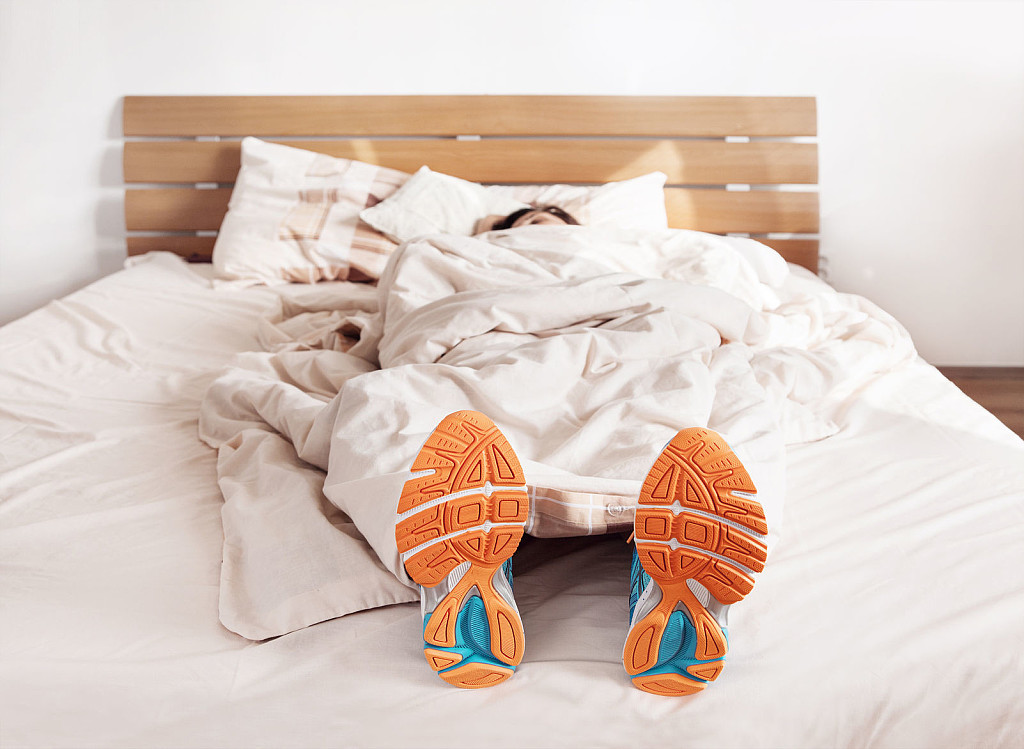Running News Daily
Running News Daily is edited by Bob Anderson. Send your news items to bob@mybestruns.com Advertising opportunities available. Train the Kenyan Way at KATA Kenya and Portugal owned and operated by Bob Anderson. Be sure to catch our movie A Long Run the movie KATA Running Camps and KATA Potato Farms - 31 now open in Kenya! https://kata.ke/
Index to Daily Posts · Sign Up For Updates · Run The World Feed
Are You Getting Enough of the Right Kind of Sleep?
To run faster, sleep slower. A growing body of research suggests runners who want to get fast need more slow-wave sleep—the deepest, most restorative stage of slumber. Slow-wave sleep (SWS) is increasingly prized for its ability to help athletes recover from heavy training and hard racing. In fact, many experts say restorative, high-quality SWS is as important to your training as proper nutrition or hydration.
Why is slow-wave sleep important for athletes?

SWS is named for the slow brain waves it creates on electroencephalogram (EEG) tests in sleep labs, which are a sign that the brain has shifted into a repair/prepare mode. During this stage of sleep, memories are consolidated, learning is enhanced, and the brain is cleansed of toxins that may contribute to degenerative brain disease. Also called deep sleep or stage N3 sleep, SWS helps you recover from one day’s workout and prepare for the next.
Research now shows that even modest deficits in SWS are linked to declines in athletic performance. That’s likely because reductions in SWS are linked to lower levels of human growth hormone (HGH), a compound that affects the body’s ability to repair muscle mass, bones and tendons, says hormone therapy specialist Carissa Alinat, PhD, APRN, founder and CEO of DoctorCarissa.com.
Without enough SWS, the body can’t repair the damage sustained during training and competition, says Alinat. Research on marathon runners shows that the body experiences higher proportions of SWS during post-race sleep, a finding that supports the role of SWS in recovery after metabolic stress.
The body “rebounds” from occasional sleepless nights by increasing SWS for a night or two. This helps explain why you may feel fine and be able to perform well on just a few hours of sleep. But this recovery effect is short lived: As few as 4 or 5 nights of restricted slumber (sleep that’s reduced by around four hours a night) can suppress the amount and intensity of SWS, according to some research.
How much slow-wave sleep are you getting—and how much do you need?
Normal, healthy adults spend around 20 percent of their snoozing hours in slow-wave sleep. That’s a little more than 90 minutes if you get a nightly eight hours. But deep sleep needs vary by age and activity level; endurance athletes and younger adults may need more.
Age and hormones can impact slow-wave sleep, says Alinat. “Around midlife, as women approach menopause and men approach andropause, we see lower levels of slow-wave sleep.” According to some studies, we lose half of slow-wave sleep after age 50 and secrete less human growth hormone as a result. Research links declining HGH secretion to age-related losses in strength and muscle mass, suggesting that decreased athletic performance and the dreaded “last PR” may be rooted in slow-wave sleep.
It’s difficult to set a baseline for how much deep sleep you need, because it can vary day to day, says certified sleep health educator Martin Reed, M.Ed., founder of Insomnia Coach. Tracking sleep stages is complex and imprecise outside of a sleep lab, so the best way to ensure you get enough SWS is to make sure you clock higher quality sleep: Time spent in deep sleep is a better predictor of athletic performance than overall sleep time, according to a 2016 study of NCAA athletes. And it can protect mood, health, and athletic performance, even when we can’t sleep as much as we’d like, says Reed.
Digital sleep trackers can help you gauge SWS—though not in the way you might think. Wearables and under-the-mattress trackers can’t measure sleep stages accurately, says sleep specialist Michael Breus, Ph.D., author of The Power of When: Discover Your Chronotype. But they can illuminate patterns: Variations in the amount of deep sleep—say, suddenly logging just 30 minutes of it when you usually get 60—or shifts in when deep sleep occurs (like at the beginning of the night versus the end of it) that last longer than a few days may suggest that long-term sleep deprivation or another issue, like increased stress, a new medication, or too much caffeine, is affecting your SWS.
Ultimately, stressing about sleep is counterproductive—the more you worry about it, the fewer zzz’s you’re likely to get. Instead, put your focus on these slow-wave sleep-boosting habits.
by Runner’s World
Login to leave a comment




